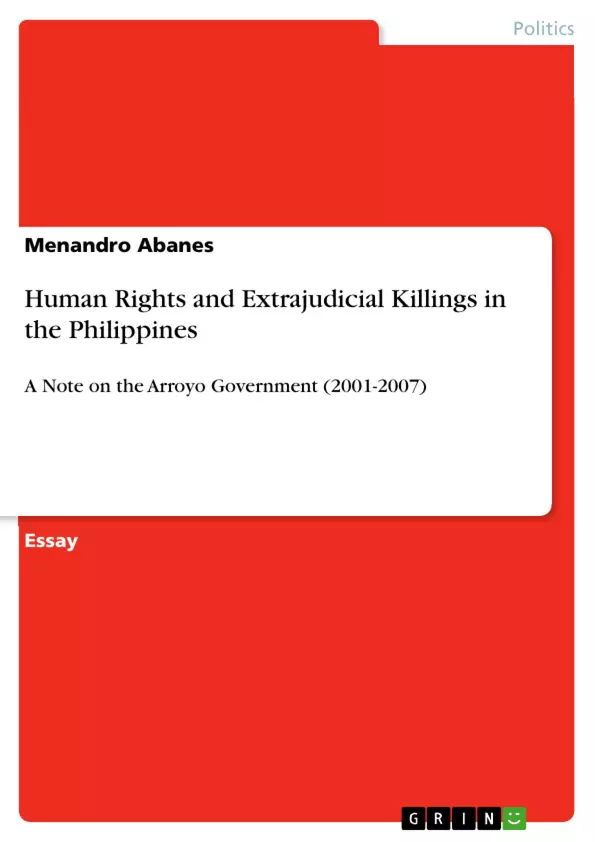There were hundreds of documented reports of extrajudicial killings, a blatant human rights violation, in the Philippines from 2001 to 2007. The Philippines is one of the first signatories to the UN Declaration on Human Rights. Signatories of the declaration recognize that these standards impose obligations, duties and commitments on them to comply and enforce in their respective territorial state.
The the practice of human rights heavily relies on the political, economic, and cultural dynamics of a certain state. This monism follows the generally accepted principle that the enforcement of human rights is in the hands of the states.
Thus, can being a signatory to the declaration make a difference in the protection and respect of human rights?
This paper looks at the case of the Philippine government under the Arroyo administration, as a signatory to the declaration, and how it performs in the field of human rights particularly with regard to the spate of extrajudicial killings by revisiting the reports of Melo commission and UN-designated Special Rapporteur, Philip Alston, on extrajudicial, summary or arbitrary executions. Then, the paper proceeds with a discussion on the effect of ratifying an internationally-accepted declaration on the Philippine government in the hope of an end to the killings.
- Arbeit zitieren
- Menandro Abanes (Autor:in), 2008, Human Rights and Extrajudicial Killings in the Philippines, München, GRIN Verlag, https://www.grin.com/document/173161



